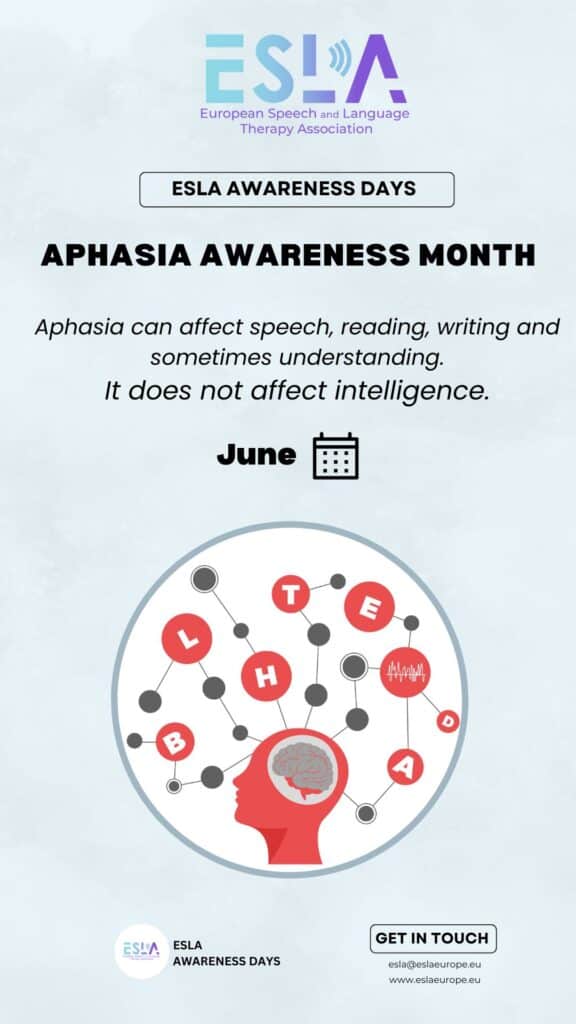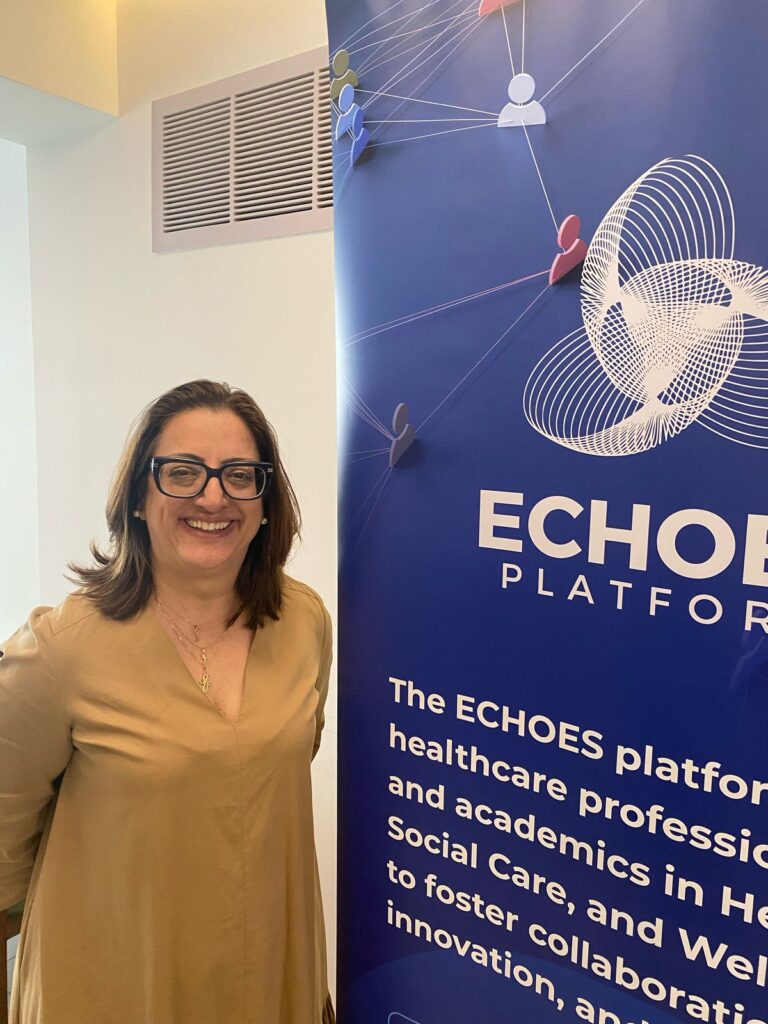Welcome
SPEECH AND LANGUAGE THERAPY
ESLA is the umbrella organisation for Speech and Language Therapy (SLT) associations across Europe. We currently have 37 member associations, representing over 40,000 SLT professionals.
Vision
European Speech and Language Therapy Association (ESLA) is the leading organisation representing the interests of the Speech and Language Therapy profession in Europe.
Mission
ESLA is the authoritative voice of the Speech and Language Therapy profession across Europe and supports the common interests of its member associations.
ESLA aims to increase the visibility and awareness of Speech Language Therapy in Europe and beyond, by actively promoting the profession and safeguarding professional and educational standards.

ESLA’s strategic objectives are:
- Be the authoritative voice of Speech and Language Therapy in Europe,
- Increase recognition, promotion and protection of the profession,
- Ensure the sustainability of the organisation.
ESLA is the umbrella organisation for Speech and Language Therapy (SLT) associations across Europe. We currently have 30 member associations, representing over 50,000 SLT professionals.
ESLA’s strategic objectives are operationalised through working groups known as Task Forces, each led by a member of the ESLA Board.
What's On
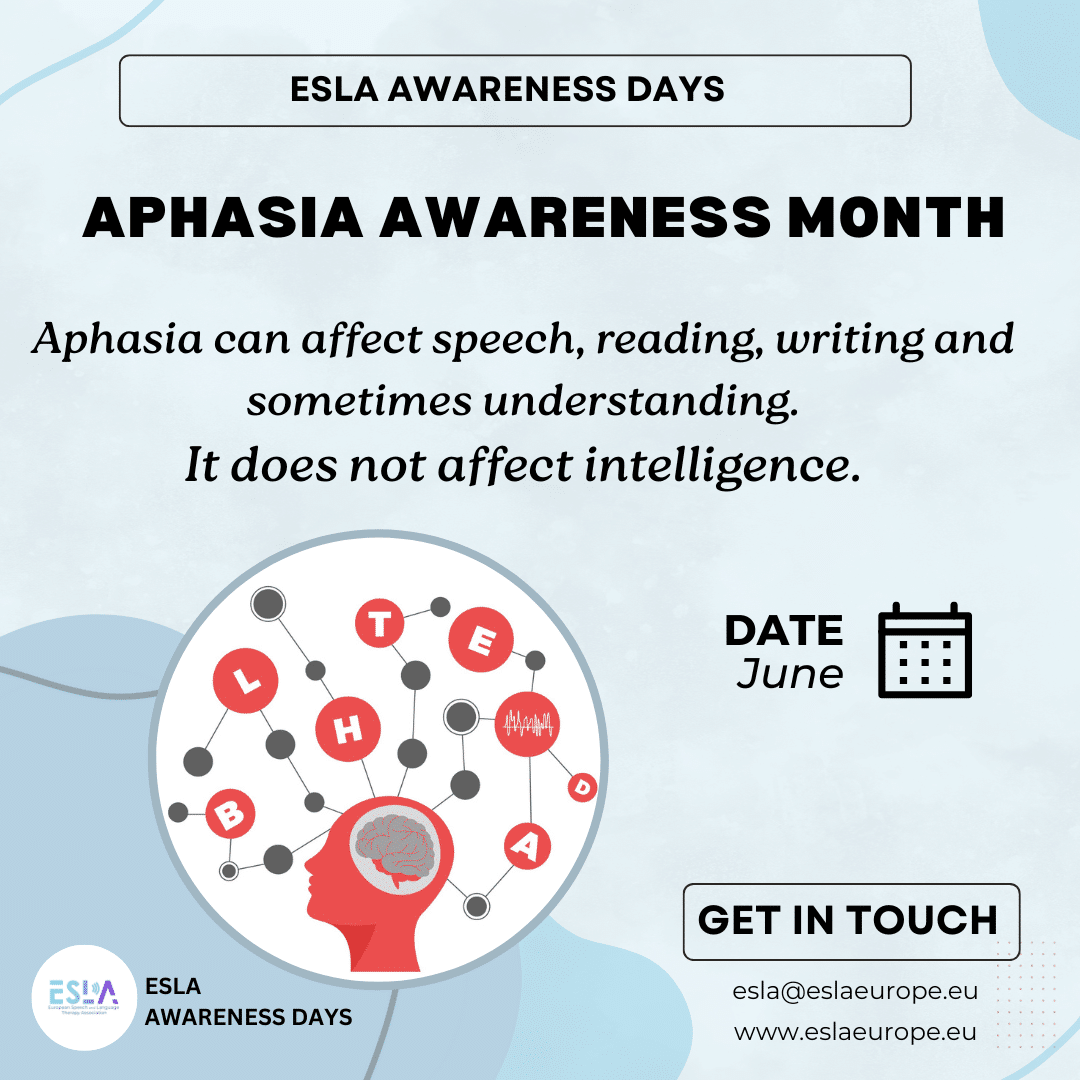
June 03 2025
Aphasia Awareness MonthAphasia Awareness monthJune is International Aphasia Awareness Month — and this year, the European Speech and Language Therapy Association (ESLA) is placing a special spotlight on aphasia, a complex communication disorder that affects millions of people across Europe and beyond. Aphasia can occur suddenly, often as a result of stroke or brain injury, disrupting a person’s ability […]
June 03 2025
ESLA at echoes eventESLA Participates in the ECHOES Platform Demonstration Event On Thursday, May 8th, 2025, the European Speech and Language Therapy Association (ESLA) was officially represented at the ECHOES Platform Demonstration event by our General Secretary, Maria Kyriacou Solomonidou. As an associated partner, ESLA is proud to contribute to this important initiative aimed at transforming healthcare education across Europe and beyond. The ECHOES project is […]
Read More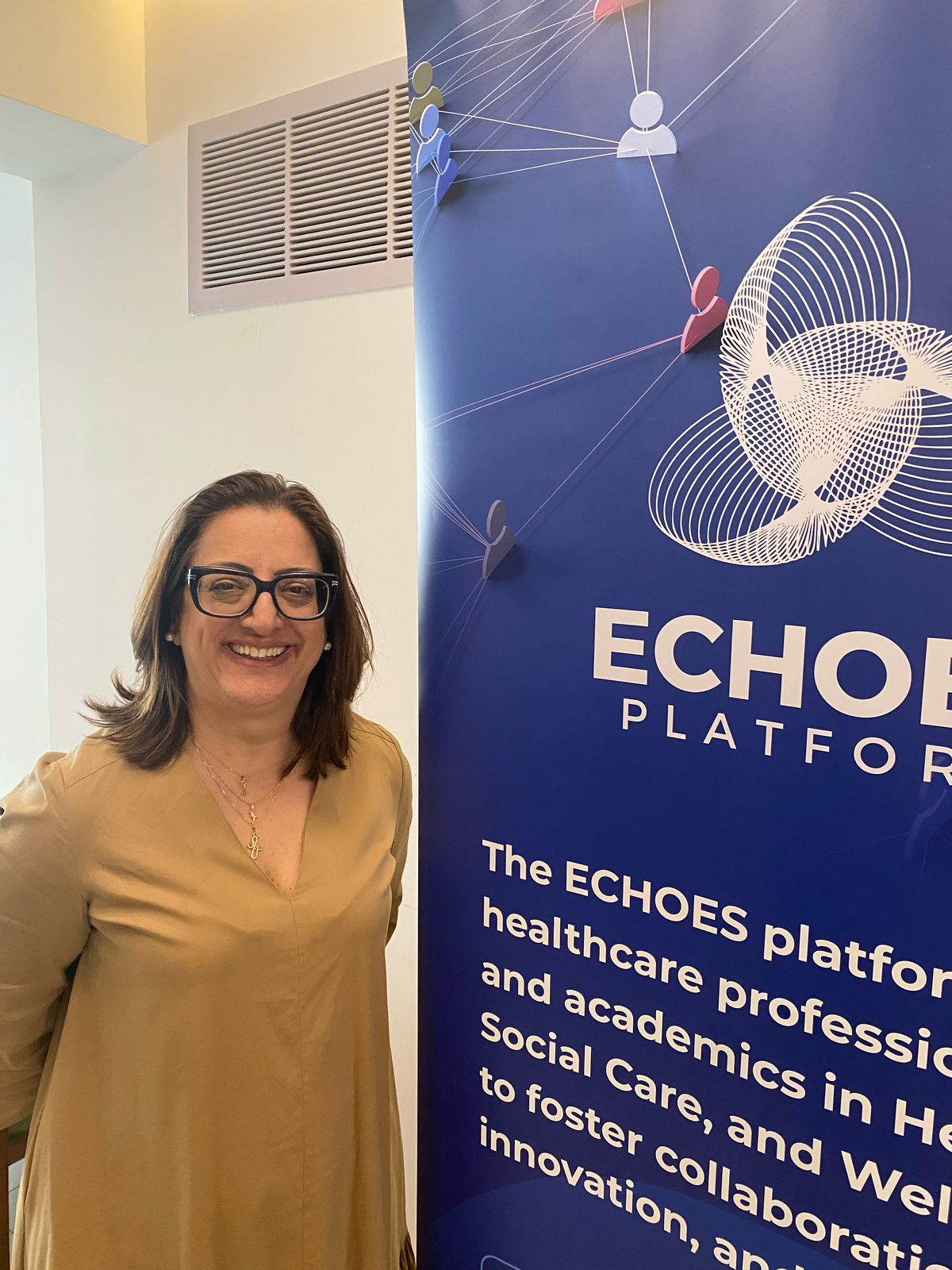
April 13 2025
ESLA NEWSLETTER #11 – APRIL 2025Newsletter April 2025Welcome to our 11th newsletter!Welcome Address by ESLA Chair Sahra Mengal Dear ESLA community It is with great enthusiasm and commitment that I take on this responsibility, and I look forward to working alongside our dedicated member associations, professionals, and stakeholders to advance the field of speech and language therapy across Europe. ESLA plays a crucial […]
Read More
April 02 2025
Sahra Mengal 2025-2027 ESLA ChairWelcome from the 2025-2027 ESLA Chair - Sahra Mengal Dear ESLA communityIt is with great enthusiasm and commitment that I take on this responsibility, and I look forward to working alongside our dedicated member associations, professionals, and stakeholders to advance the field of speech and language therapy across Europe. ESLA plays a crucial role in supporting and […]
Read More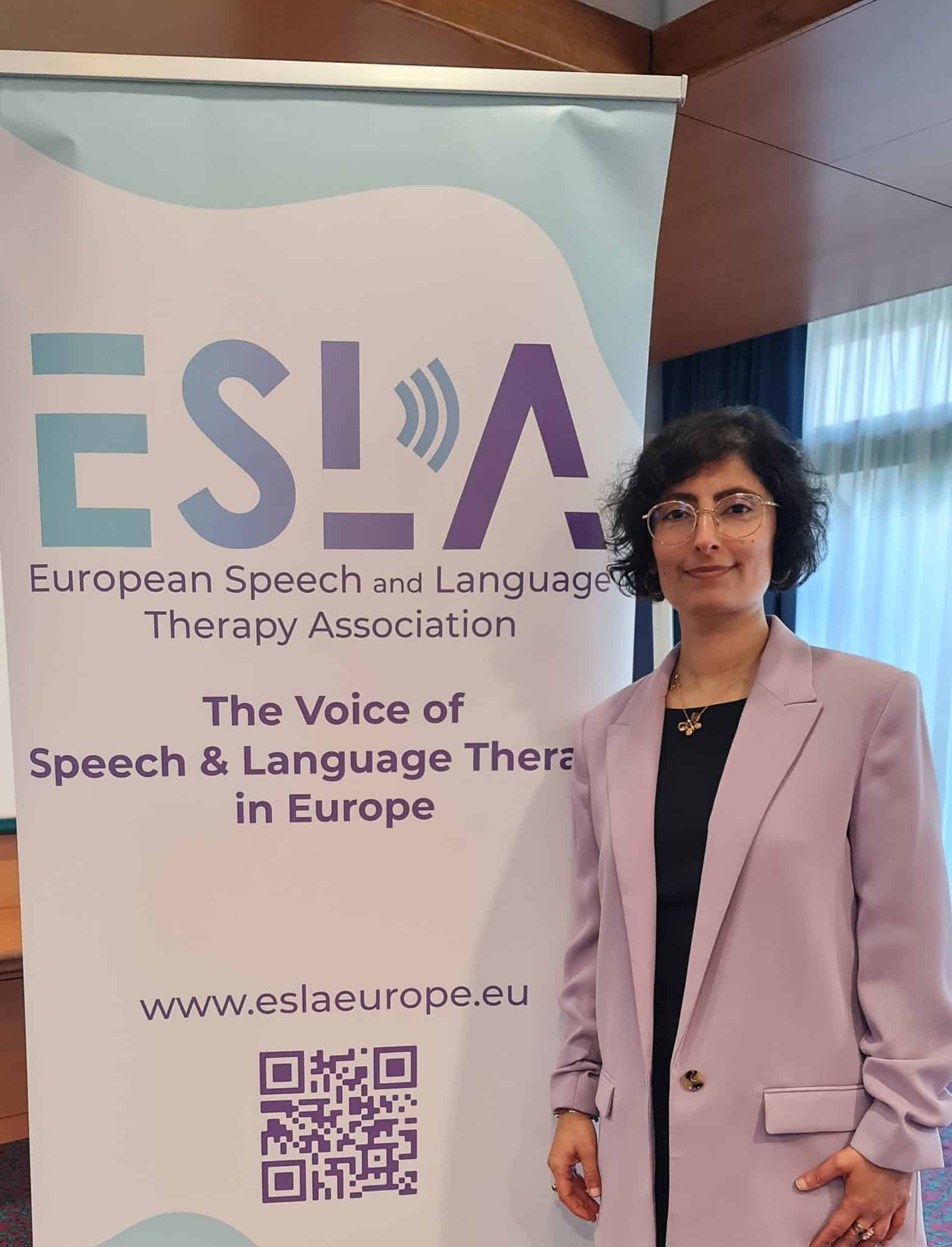
The voice of European Speech and Language Therapists
ESLA promotes the profile and reputation of the SLT profession to the European Commission, other relevant authorities and related organisations, by publishing statements and policies advocating the value of our services for people with communication and swallowing difficulties.
ESLA STATEMENT ON EQUALITY, DIVERSITY & INCLUSION (EDI)
The values and activities of ESLA are based on the principles of respect for human dignity, freedom, democracy, equality, the rule of law and respect for human rights as stated in the
- United Nations Universal Declaration of Human Rights,
- European Convention for the Protection of Human Rights and Fundamental Freedoms &
- Charter of Fundamental Rights of the European Union.
The members of ESLA are the national professional organizations of SLTs / orthophonistes / logopèdes / logopédistes meeting the criteria for membership set out in our Statutes. Each of these associations have their own Statutes and/or Statement of professional standards, incorporating a commitment to ethically based practice that promotes the values of equality, diversity and inclusion.
ESLA actively supports equality, diversity and inclusion and specifically promotes equality of access to health, education and social care services for all the populations and communities with whom we work.
ESLA also promotes and protects the value of cultural diversity across the SLT professional membership, as being essential to most appropriately meet the needs of the increasingly diverse societies we serve.
As part of our commitment to advocacy, ESLA undertakes an annual campaign for raising public awareness of communication and swallowing difficulties and the role of Speech and Language Therapy.

SLT Professional Practice
ESLA supports the Speech and Language associations across Europe by promoting quality standards for professional practice that is both evidence-based and ethically-based. ESLA promotes continuing professional development opportunities for qualified practitioners to stay updated in their own field.
SLT Professional Education
SLT education reflects the scientific and interdisciplinary bases of the profession in medicine, education, linguistics and psychology. ESLA maintains updated information on the relevant statutory and legal requirements across Europe relating to standards in healthcare education and competency-based frameworks for assuring patient access to quality care.


SLT Clinical Practice
Speech and Language Therapists work with individuals of all ages, whose communication and/or swallowing difficulties arise from medical, cognitive, psychological, or social factors. The professional role includes direct intervention as well as providing training and advice for others; with the aim of supporting optimal development or recovery of skills and maximum independence for the individual.
SLT across Europe
ESLA promotes mobility of employment for SLTs across Europe, within the relevant regulatory and legal frameworks of all our member associations. ESLA actively advocates the SLT professional profile to the European Commission, other relevant authorities and related organisations.


NetQues
The Network for Tuning Standards and Quality of Education programmes “NetQues” was an important collaborative project of 65 partners, representing 27 European member states. The project addressed the challenge of ‘tuning’ the SLT professional education across Europe by defining benchmarks for best practice in teaching, learning and assessment. The project concluded in 2013 and the final report can be accessed here.
37
Member associations
34
Countries
40,000+
SLT Professionals
02
Languages | English and French
What's On

June 03 2025
Aphasia Awareness MonthAphasia Awareness monthJune is International Aphasia Awareness Month — and this year, the European Speech and Language Therapy Association (ESLA) is placing a special spotlight on aphasia, a complex communication disorder that affects millions of people across Europe and beyond. Aphasia can occur suddenly, often as a result of stroke or brain injury, disrupting a person’s ability […]
June 03 2025
ESLA at echoes eventESLA Participates in the ECHOES Platform Demonstration Event On Thursday, May 8th, 2025, the European Speech and Language Therapy Association (ESLA) was officially represented at the ECHOES Platform Demonstration event by our General Secretary, Maria Kyriacou Solomonidou. As an associated partner, ESLA is proud to contribute to this important initiative aimed at transforming healthcare education across Europe and beyond. The ECHOES project is […]
Read More
April 13 2025
ESLA NEWSLETTER #11 – APRIL 2025Newsletter April 2025Welcome to our 11th newsletter!Welcome Address by ESLA Chair Sahra Mengal Dear ESLA community It is with great enthusiasm and commitment that I take on this responsibility, and I look forward to working alongside our dedicated member associations, professionals, and stakeholders to advance the field of speech and language therapy across Europe. ESLA plays a crucial […]
Read More
April 02 2025
Sahra Mengal 2025-2027 ESLA ChairWelcome from the 2025-2027 ESLA Chair - Sahra Mengal Dear ESLA communityIt is with great enthusiasm and commitment that I take on this responsibility, and I look forward to working alongside our dedicated member associations, professionals, and stakeholders to advance the field of speech and language therapy across Europe. ESLA plays a crucial role in supporting and […]
Read More

